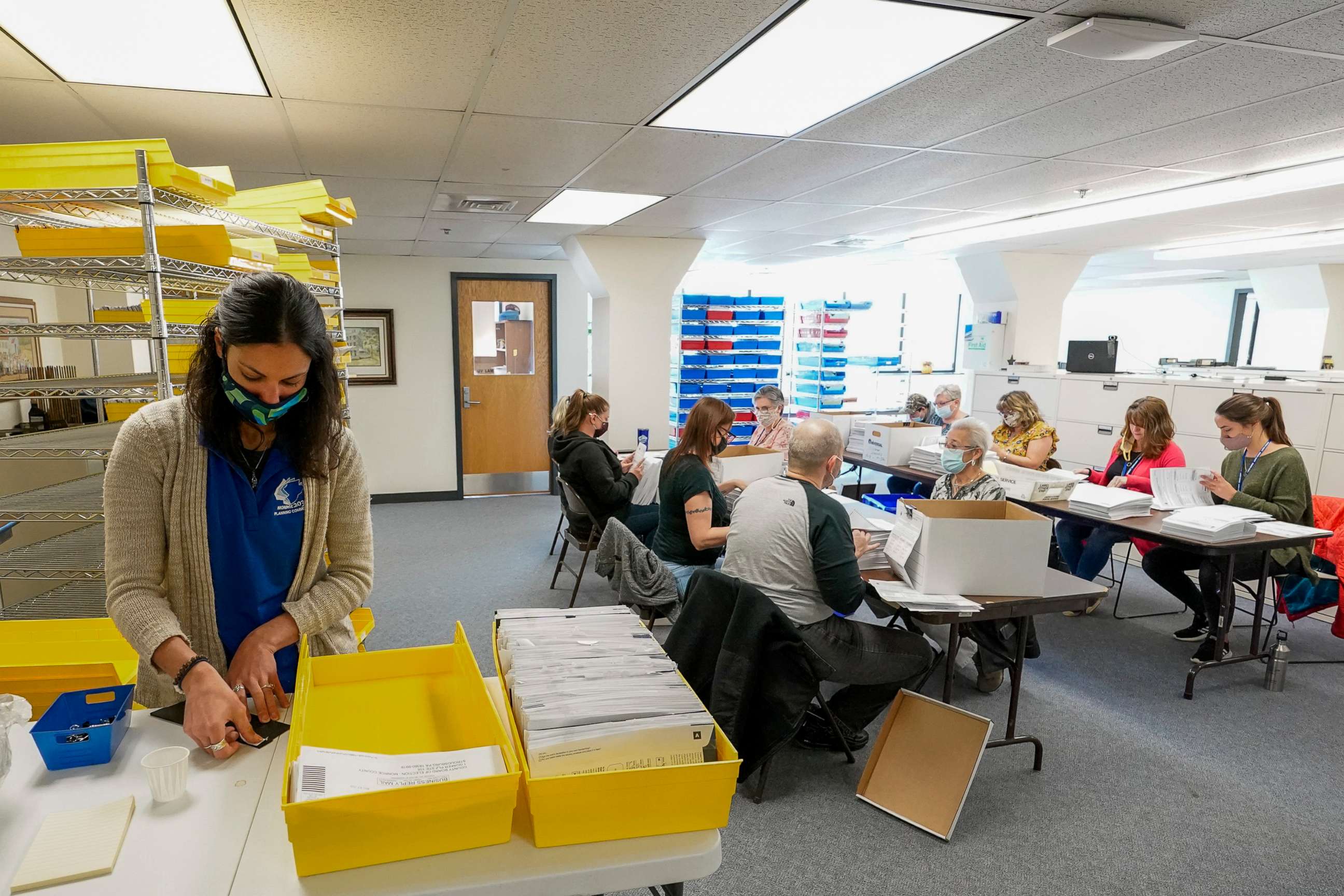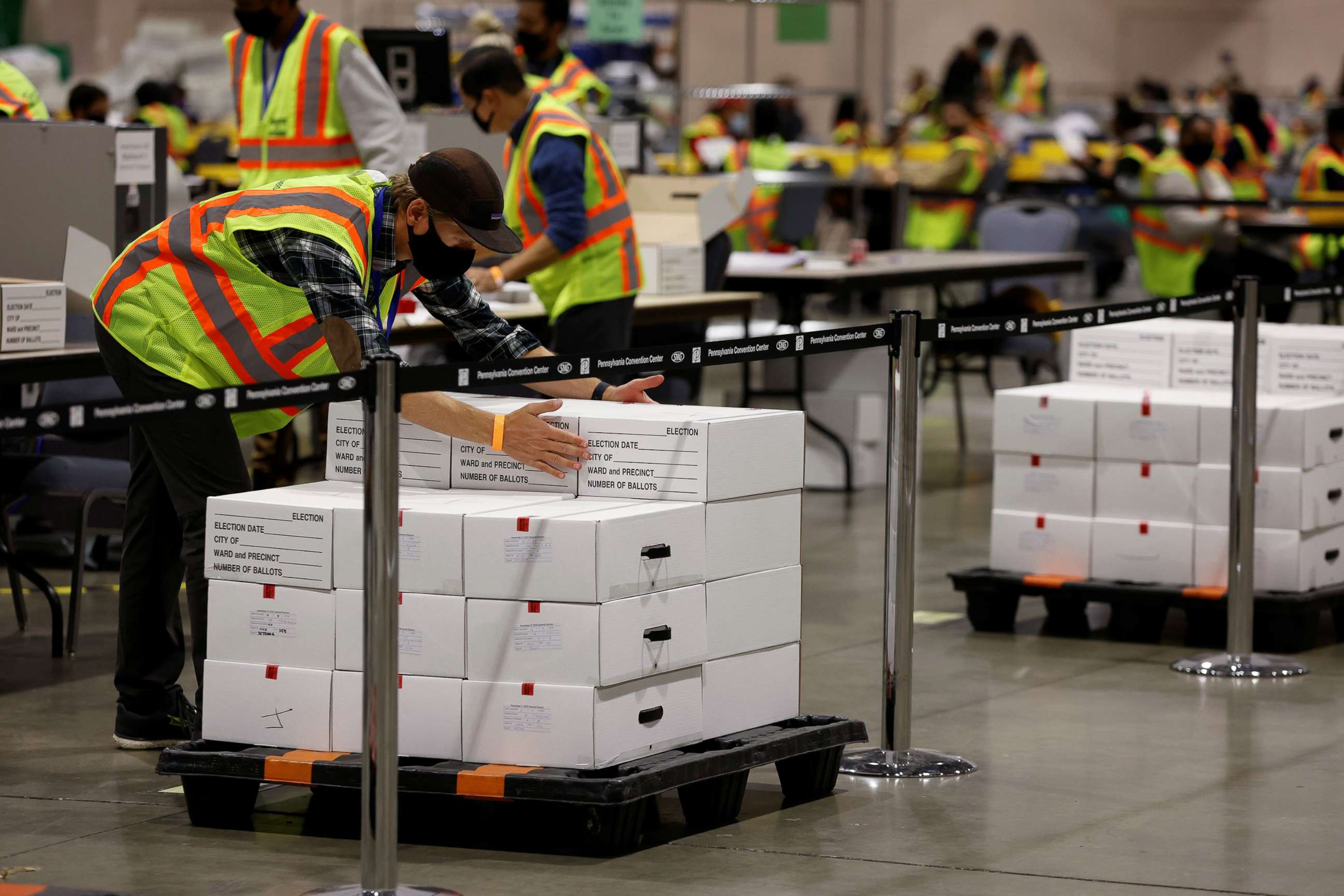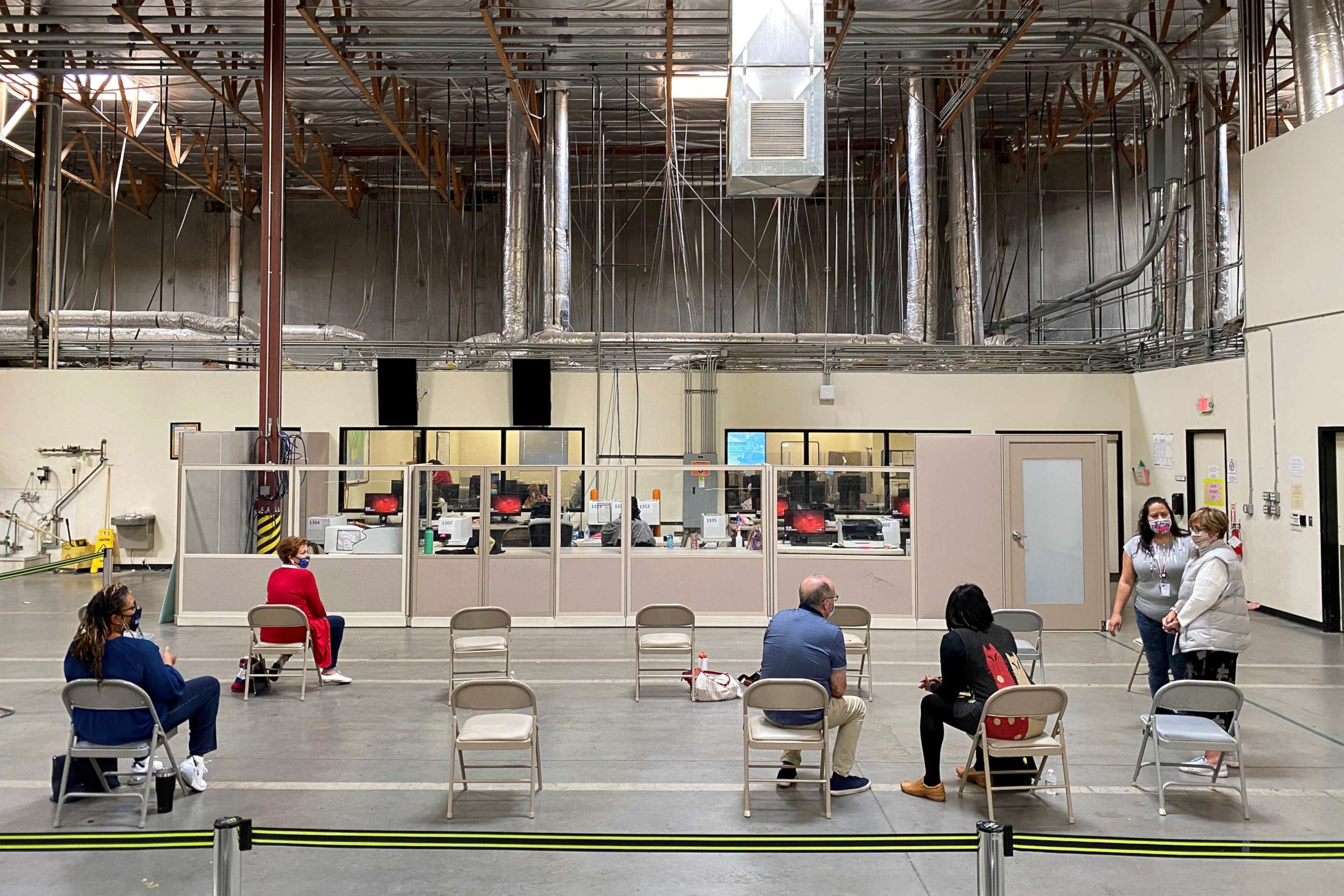This is how many states count votes received after Election Day
A winner has not been projected in four of the states included in the list.
The law in 21 U.S. states permits mail-in votes received after Election Day to be counted toward the final tally, according to data from the National Council of State Legislatures.
Four of those states are states where ABC News has yet to project a winner between Joe Biden and Donald Trump -- ballots are counted 10 days after the election in Alaska, seven days after in Nevada, nine days in North Carolina and three days in Pennsylvania.
On Thursday, President Donald Trump falsely tweeted that any vote that arrived after Election Day would not be counted. The tweet was flagged by Twitter's civic integrity policy.
The NCSL list has been updated to include COVID-19 as an excuse for requesting an absentee ballots in states where providing an excuse to acquire such a ballot is required.

In each of the 21 states that allow late counting, absentee ballots must be postmarked by Election Day, except for in Iowa, where the ballots must be postmarked by the day before Election Day. California has the longest timeframe for vote eligibility at 17 days after Election Day.
It is possible ballots could be counted after Election Day in Utah, which was not included in the ABC News count. State law requires mail-in ballots in Utah to be postmarked by the day before the election and received by noon on the day of the county canvass, which varies by county but may be as late as Nov. 17.

Election officials anticipated a delay in vote counts due to a record number of mail-in voting this election season combined with ballot counts that didn't start until Election Day in most states.
Trump's legal team has filed lawsuits in Pennsylvania and in Michigan in an effort to halt the vote count until courts can enforce rules that permit campaign observers to watch the ballots being opened and counted.
Votes from active military troops overseas traditionally have been counted late. The Trump campaign said that exceptions should be made for late ballots from overseas military but not for citizens within the U.S.

"President Trump believes that military ballots should be accepted according to the law, as always, and that the law should be applied as written to everyone else," Trump campaign spokeswoman Thea McDonald said earlier this week, according to the Washington Post. "There are and should be exceptions for our military members serving our country overseas. There should not be exceptions for the Democrats in Philadelphia who attempt to vote after Election Day."
Prior to the election, Trump repeatedly claimed without evidence that many voters would be using mail-in ballots to commit fraud.




